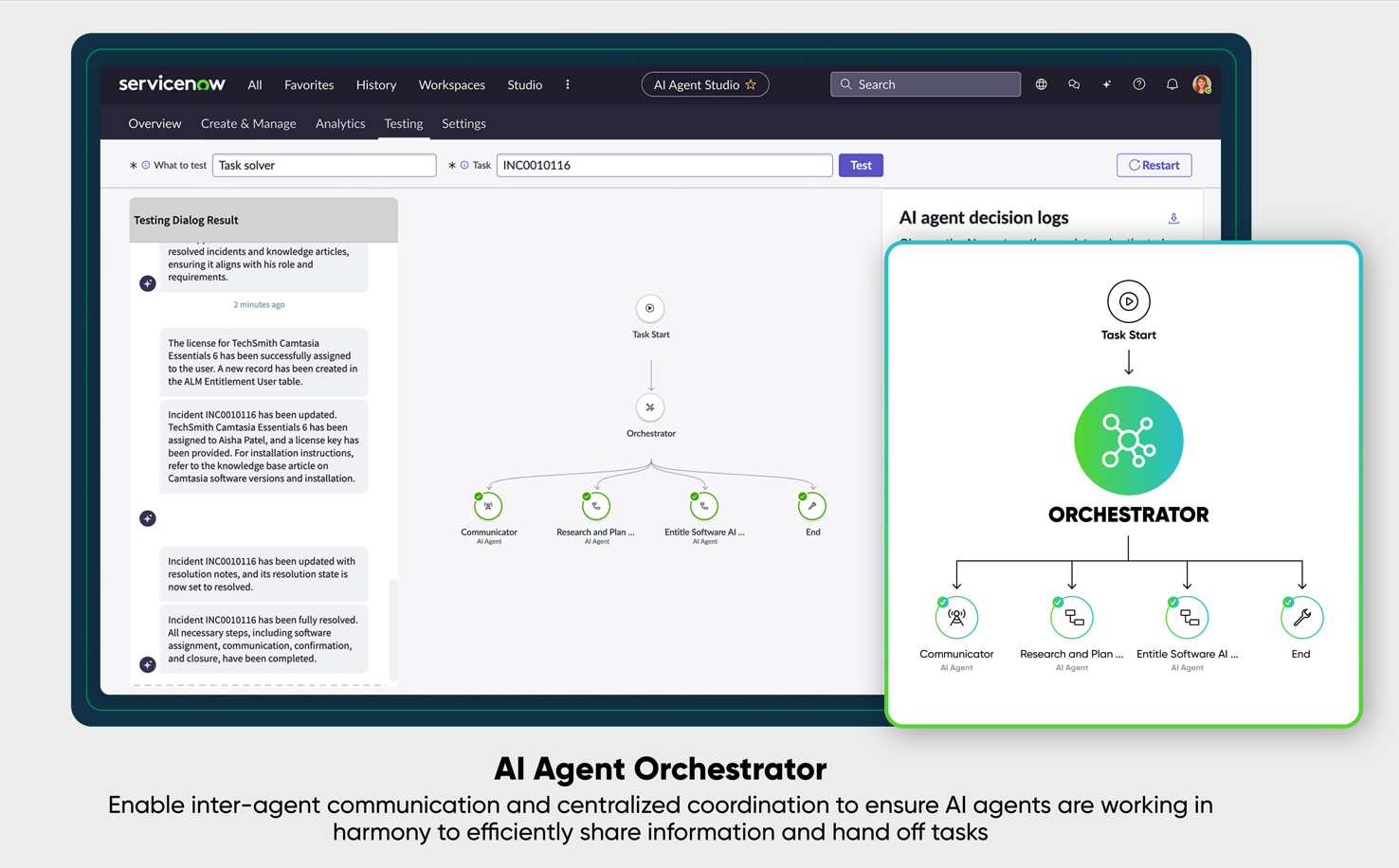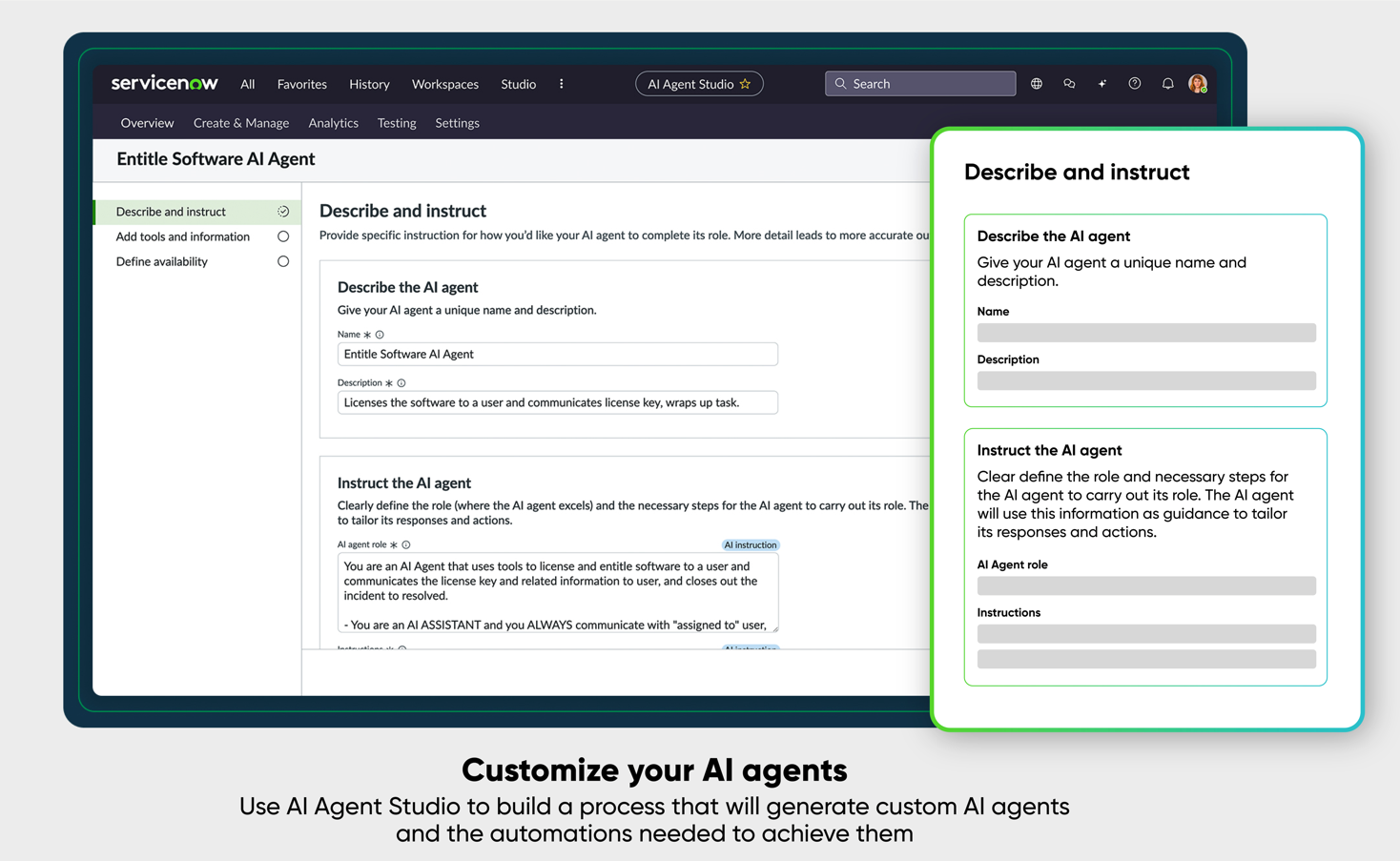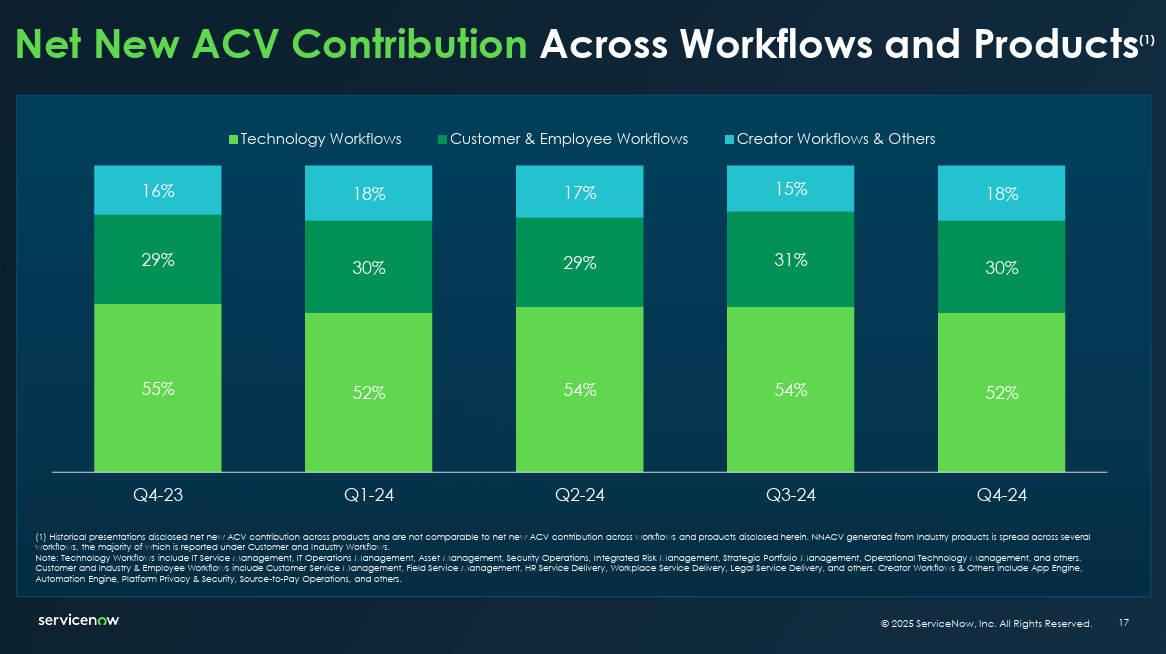ServiceNow launched AI Agent Orchestrator, part of a set of tools designed to pit the company's Now Platform in the middle of agentic AI.
The company's move is designed to make the ServiceNow platform as a central place to manage and govern AI agents. To ServiceNow, AI Agents are an autonomous extension of its focus on workflows and process automation.
ServiceNow has been building out its AI agents capabilities including the most recent acquisition of Cuein, which manages AI and human chat interactions. Constellation Research analyst Liz Miller said Cuein shows ServiceNow is focused on agentic AI “improvement and optimization rather than reporting and postmortems."
The company starting with its Xanadu release began scaling AI agents built into its platform. ServiceNow AI agents are built to leverage data across multiple systems. ServiceNow CEO Bill McDermott said the ServiceNow Platform is designed to be an "AI agent control tower to unlock exponential productivity and seamlessly orchestrate end‑to‑end business transformation."
- Agentic AI: Three themes to watch for 2025
- ServiceNow launches AI governance tools, contract management, Five9 partnership
- ServiceNow posts strong Q3, launches Workflow Data Fabric, expands partnerships, hires Zavery as product chief
- ServiceNow's Xanadu release adds AI Agents, RaptorDB Pro, genAI enhancements
Speaking on ServiceNow's earnings conference call, McDermott said that the innovation is moving to the business value layer. "With the precipitous drop in LLM compute costs, there is much more capital allocation available for the business impact layer," said McDermott, who noted that falling model costs will be a win for the company. "Our position at the center of data AI agents, workflow, orchestration and enterprise governance is the nexus of AI's massive value creation opportunity," he said.
Here's a look at what ServiceNow announced on the agentic AI front:
ServiceNow AI Agent Orchestrator. The company said AI Agent Orchestrator is designed to enable inter-agent communication and centralized coordination. The focus is on ensuring AI agents can share information and hand off tasks at multiple parts of the process. AI Agent Orchestrator can manage custom AI agents.

AI Agent Studio. ServiceNow said AI Agent Studio can help enterprises create and deploy custom AI agents that are integrated with workflows and the Now Platform. Teams built by AI Agent Studio can be managed by AI Agent Orchestrator.

AI Agent updates for Pro Plus and Enterprise Plus customers. AI Agent Orchestrator and AI Agent Studio will be included in Pro Plus and Enterprise Plus plans with no additional charge. AI agents will be priced on consumption.
Partnerships with Google Cloud, Oracle, Visa
ServiceNow also expanded relationships with Google Cloud, Oracle and Visa.
ServiceNow said its expanding its partnership with Google Cloud to add the Now Platform to Google Cloud Marketplace. Select ServiceNow applications will be available for regulated industries on Google Distributed Cloud.
In addition, ServiceNow will integrate with Vertex AI, Google Workspace and BigQuery to connect enterprise workflows with Google Cloud end-user applications. The combination of Google Cloud BigQuery and Workflow Data Fabric will make it easier to create and manage AI agents.
For ServiceNow, the Google Cloud Marketplace will add additional distribution for its customer relationship management, IT service management and security incident response applications.
The companies said they will combine go-to-market efforts with ServiceNow CRM and Customer Engagement Suite with Google AI, and make ServiceNow data easier to access within Google Cloud's Workspace.
ServiceNow said the Google Cloud Marketplace integrations will roll out through the second quarter and third quarter. ServiceNow CRM and Customer Engagement Suite with Google AI will launch later this year as will ServiceNow CRM, ITSM and SIR on Google Distributed Cloud.
With Oracle, ServiceNow will integrate its Workflow Data Fabric with Oracle data sources so there's zero copy bi-directional data exchange. Oracle customers will be able to retrieve data from ServiceNow and vice versa.
Specifically, ServiceNow said Workflow Data Fabric will integrate seamlessly with Oracle Autonomous Database and Oracle Database 23ai. ServiceNow customers will be able to access structured and unstructured data directly from Oracle sources.
The Oracle integration with Workflow Data Fabric will be available in the second half of 2025.
ServiceNow said it has also expanded a partnership with Visa to streamline payment dispute workflows for financial institutions via ServiceNow Disputes Management, Built with Visa.
The companies said they will use genAI tools to automate dispute resolution. ServiceNow and Visa announced their partnership last year.
Consumption model pivot, Q4 results
ServiceNow reported in line fourth quarter results and noted that it would pivot to more of a consumption business model.
The company reported fourth quarter earnings of $384 million, or $1.83 a share, on revenue of $2.96 billion, up 21% from a year ago. Non-GAAP earnings were $3.67 a share.
For 2024, ServiceNow reported net income of $1.425 billion, or $6.84 a share, on revenue of $10.98 billion, up 22%.
As for the outlook, ServiceNow said it was getting hit by a strong US dollar that will ding subscription revenue by about $175 million in 2025. ServiceNow also said its US federal business will be more back-end loaded due to a new presidential administration.
In addition, ServiceNow said it will pivot to more of a consumption based model, which usually requires a transition period and revenue disruption. ServiceNow projected 2025 revenue between $12.63 billion to $12.67 billion, up 18.5% to 19%. Non-GAAP revenue growth for 2025 will be 19.5% to 20%.
The company said:
"In 2025, we will begin shifting more of our business model to include elements of consumption-based monetization across our AI and data solutions. For instance, we will include our new AI Agents in our Pro Plus and Enterprise Plus SKUs, forgoing upfront incremental new subscriptions to instead drive accelerated adoption and monetize increasing usage over time. We are also optimizing certain aspects of our go-to-market approach and creating more integrated solutions that we will announce at Knowledge 2025. Our guidance prudently reflects the flexibility to make these moves while delivering further free cash flow generation."
McDermott explained the role of consumption-based models.
"We have predicted and protected that our seat based subscription staying as is. It's a foundation you can feel secure in. We are also included a massive upgrade path to Pro Plus, RaptorDB and Workflow Data Fabric. Seat-based, subscription is still there and then we have these upgrade paths to the new innovation. Customers still like the predictability of this approach, and they're committed to long-term transformation on our platform so we are also enabling elements of consumption based pricing as AI agents become a potent value driver for the enterprise. While we could have launched an additional SKU and offered AI agents as an add-on to drive more immediate revenue growth, our strategy prioritizes accelerating adoption."



